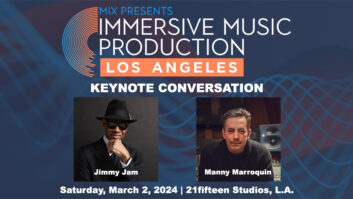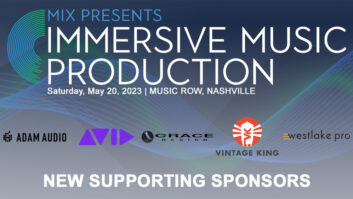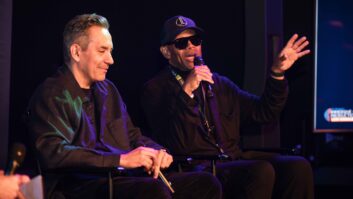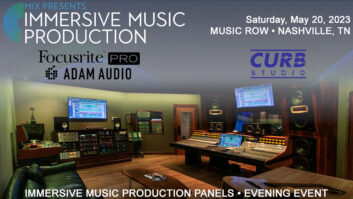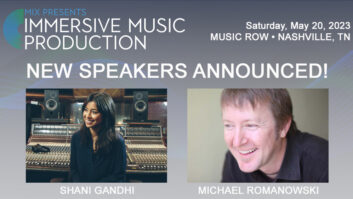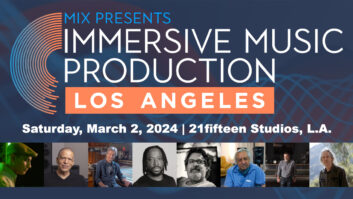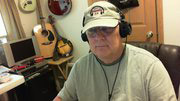
Studio 51’s David Trotter
This month, we are pleased to bring you an interview with a music industry professional who is not only widely regarded as an expert on production music, frequently traveling the country speaking at music events, but whose company has also achieved mega-success in the field. And while the unpredictable nature of the times is forcing closures and cutbacks throughout the industry, Studio 51’s David Trotter has managed to expand his company into new territory. We asked him how composers and studios can achieve success in the production music world, what his latest venture is all about and to shed light on some of the newest trends that are likely to affect composers and studios in the near future.
A UNIQUE APPROACH TO MUSIC PLACEMENT
Chicago-based Studio 51 isn’t another music production studio. It’s not a placement service. It’s not a music library. It’s a music library service: The company’s collection of music and composers is marketed to libraries that have relationships with major players in the production music community. “What made sense to us from a business perspective was deciding not to compete with major production music libraries,” says Trotter, who founded the company in 2003. “We decided to provide a service to the libraries rather than going up against them and approaching production companies directly.”
That’s one of the facets of the company that makes it unique. Another is the fact that it doesn’t contract individual pieces of music but signs composers to its roster. The music they write is then supplied to major network programs, national s, feature films and other projects.
To get a perspective on the scope of Studio 51’s reach, consider the following:
- The company has approximately 130 signed composers and is the Number One provider of music to Harpo Sounds
- Its music comprises a large collection in the Pacifica Music Library, one of the industry’s most significant providers of music to Hollywood TV and film productions
- As of December 1, 2011, the company’s needle-drop count in network TV was at approximately 22,000.
So what’s the secret to Studio 51’s success? According to Trotter, a major contributor to the high number of his company’s TV placements is the intensely strict guidelines it applies to its selection process. “The bar for network TV music is extremely high so we have to follow a very rigid policy in terms of selecting composers for our team,” explains Trotter. In fact, of the composers who make it through the initial screening process that is conducted by an outside placement company, only 10 percent are ultimately offered slots on Studio 51’s roster.
A STEP FURTHER
In 2012, Trotter will launch a new resource, the Studio 51 Music Library, which will include hundreds—and eventually thousands—of music selections that will be featured in some of the most reputable music libraries in the business. Unlike some traditional libraries, Studio 51’s version is striving to offer equal benefits to both writers and clients. “The biggest benefit to writers who are part of our library is that they will have the opportunity to gain a great deal more exposure than they would be able to on their own,” says Trotter. “Because they will be identified as being a part of a select group of writers and within a reputable library, decision-makers will be more apt to take notice and license their music.”
When it comes to the client side of the scenario, the benefits are equally enticing. Not only will the new library adhere to the same policies regarding music selection and feature-only music that meets the strictest industry standards, it will also contain all of the necessary information networks require for placement, offering great ease of use on the part of the customer. “Each piece of music featured in the library will be included in the Studio 51 Library Website and will include appropriate metadata, specs for decibel levels and various versions that are commonly needed in production [full, underscore, percussive; :15, :30 and :60],” says Trotter. These customer-friendly features, coupled with an assurance that they will have access to only top-quality music through Studio 51, will be an instant selling point for discriminating decision-makers.
Trotter says he has already begun promoting the new Studio 51 Library to major music libraries in the industry and several libraries have already expressed interest. However, Trotter is only considering those that are members of the Production Music Association (PMA), an organization that promotes and protects the interests and rights of both publishers and composers and applies the highest standards.
Speaking of high standards: While the company hopes to be able to provide in the range of 10,000 to 12,000 pieces of music annually to productions and will be adding upward of 100 new writers to its roster to accommodate the lofty growth goal, the selection process will be no less rigorous than it currently is. If you are a composer who wants to be considered for the Studio 51 Library, Trotter offers a few tips.
First, you’ve got to demonstrate artistic uniqueness. “We aren’t looking for average; we’re looking for great,” says Trotter. Secondly, you’ve got to have a solid understanding of the production music industry and the type of music needed to craft music for film and TV. “There’s a difference between composing music for radio and production formats. If you don’t know what those differences are, you’re not ready to be a Studio 51 writer just yet.” Finally, as a composer, you’ve got to use the finest sample libraries available to make the cut. “If there’s a piece that involves strings and you don’t play or have a live player available, you’ve got to understand how to articulate the violin authentically using the software you have,” says Trotter. “In other words, it’s got to sound like the real thing or it just won’t cut it.”
THE FUTURE OF PRODUCTION MUSIC
In addition to the strict production guidelines that writers are required to meet, they also have to offer their music on an exclusive basis. Though some writers view this as a negative because it limits their ability to shop a piece of music around to other possible clients, if their goal includes placements with the networks, it’s a reality they will have to get used to. “I’ve talked directly with reps at both ABC and NBC, and they have declared in no uncertain terms that they will only be working with exclusive libraries in the near-future, so if a composer isn’t willing to offer his music exclusively, down the road he simply won’t be considered for placement with the major networks,” reports Trotter. A benefit of exclusive deals is that it serves to declutter the industry of the music that is circulating under multiple titles. “I liken re-titling to throwing spaghetti at a wall to see what will stick,” says Trotter. “While writers often think that retitling benefits them, more often than not it benefits publishers, as typically they make a lot off of a large number of inferior placements, while individual writers tend to make much less. Additionally, there is confusion as to who actually owns a piece of music that has been listed under several titles, which presents a music-clearance problem. The bottom line is, it’s dangerous for composers, and it will likely come to an end in the not-too-distant future.” (Find out more about the re-titling process and why, if you’re a writer, you need to understand its pros and cons.)
As we enter the age of digital fingerprinting and watermarking, there has never been a more important time for composers to understand both sides of the equation: the artistic and the business side. “If you’re a composer and you fail to do this, as much as I hate to say it, you’re doomed,” warns Trotter. The burden will fall on composers to understand and have a handle on the technical aspects of their music placements and have a solid grasp of the contracts into which they’ve entered. “The bottom line is, if a legal issue were to come up with a piece of music, the burden will fall on the shoulders of the composer, not the library, and the composer will be held accountable,” he says. In other words, composers, it’s time to get educated.
Trotter recently launched a new Facebook page via Studio 51, which he says will be used to offer advice about the production music industry and to answer questions from composers.
PopMark Media is creative media partnership that offers creative and marketing services, custom music and music production, and audio post production services to a wide range of music, film, and business clients.

